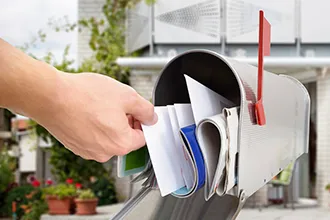
Spring Cleaning: Keeping Your Identity Clean
Are you getting ready to do some spring cleaning? If you are like most of us, you will toss out some papers as spring nears. April also happens to be Records and Information Management month. Identity thieves know that we often toss out valuable information during a spring cleaning purge, and they are on the lookout for anything they can grab that will help them steal your identity. Below are a few tips to keep your identity safe while you freshen up your home.
• Invest in a cross-cut or confetti-cut shredder. For less than $100, you can invest in an effective ID theft prevention tool.
• Shred all documents and mail that contain any personal identifying information. This would include all of those pre-approved credit card offers you receive, offers to join AARP or other membership organizations and magazine renewal notices.
• Shred any credit card bills, utility bills, cell phone bills or bank statements you are throwing away.
• Shred any tax-related information you are throwing away, even your work sheets or notes.
• If you do not have a shredder, put all of your documents in boxes and contact your local city offices to determine if there is a shred-a-thon coming to your community. Many communities host shred-a-thons in April and again in October.
• Invest in a bank safety deposit box and take all of your valuable paperwork there for safe storage. This would include original birth certificates, social security cards, vehicle titles, title to your home or original mortgage paperwork, loan information, and investment information.
Prepare for next year! Wouldn’t it be great to have a head start on next year’s spring cleaning and reduce your risk of ID theft at the same time? Here are some tips:
• Consider going paperless. Most credit card agencies, banks and credit unions will allow you to receive statements and bills online. This reduces the amount of paperwork that contains personal identifying information.
• Online banking also offers you the ability to pay bills from your banking account website, reducing the number of visits to other sites. Many banks will even write and mail checks on your behalf.
• Scanning and electronically storing receipts and other information reduces the amount of papers an ID thief could access. Just make sure to shred the hard copies.
• Once all of your accounts are online and your information is scanned onto your computer, you will need to make sure you practice good cyber safety practices.
o Never conduct financial business using a hand held device and/or a public Wi-Fi network.
o Always ensure your connections are secure before doing online banking.
o Use strong passwords and change them often. Passwords protect your computer and hand held devices.
o Once you have scanned information onto your computer, consider copying it to a flash drive or external hard drive, then deleting the information from your computer. If you store the external device in a safe location, you are reducing your risk of a hacker gaining access to your information.
Remember that ID thieves have many ways of accessing your information. A few simple steps can reduce your risk of becoming a victim. Call the Colorado Bureau of Investigation for more tips and crime prevention ideas at 303-239-4649. If you have been a victim of ID Theft or Fraud, please call the CBI 24 Hour ID Theft & Fraud Hotline at 1-855-443-3489 (toll free).
















